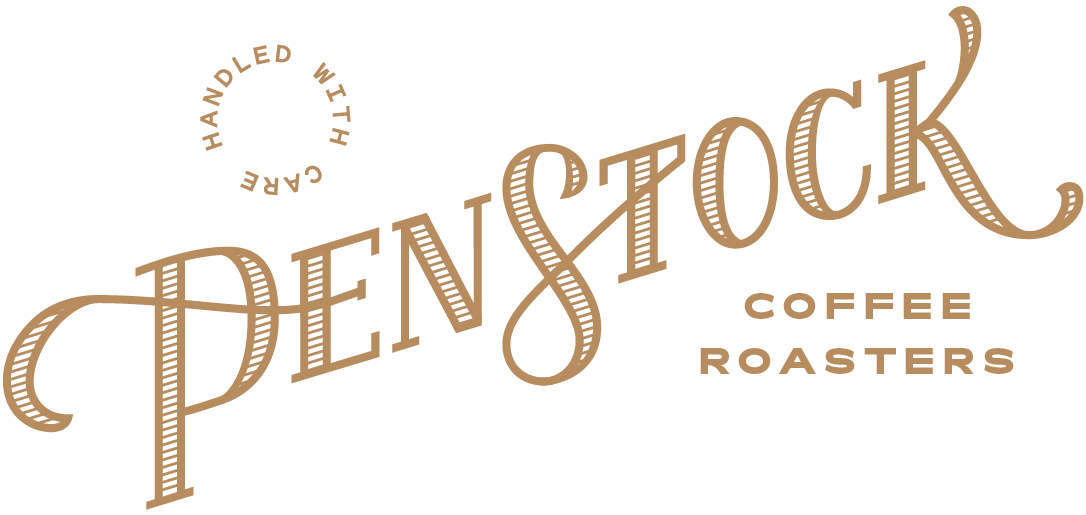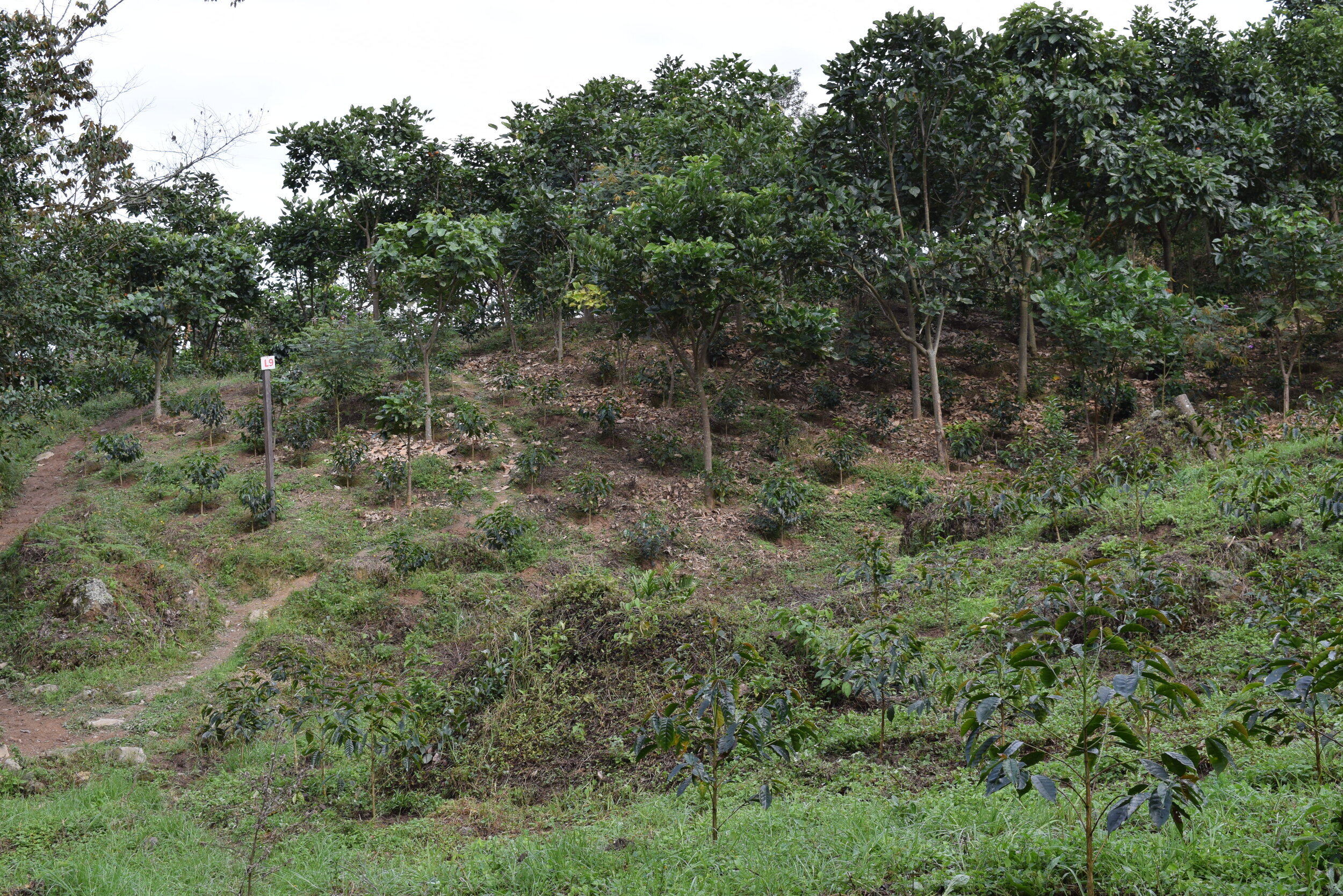Are Our Coffees Organic?
~~~~FOR AN UPDATE ON HOW WE ARE CERTIFIED ORGANIC, SEE OUR MORE RECENT BLOG POST FROM FEBRUARY 2021!~~~~~
—————————————————————————————————————————————————————————
It’s a question we get from time to time, and it is important to different people for different reasons. Several local farms use our grounds as compost and want to use soil that produces an organic harvest, while our customers who drink our coffee just plain want to know!
Sourcing
Most roasters purchase coffee from importers who work with exporters who buy from farmers; when a roaster wants a coffee, they call their importer and give price, taste, certification, and timeline requirements, and the importer finds coffees for them from their export partners. Our model is different. We work with a small group of growers (farm owners, mill owners, or NGOs) who develop coffee lots for us, and then we contract with exporters/importers to bring the coffees in for us. We work with producers who opt for minimal to no use of synthetic pesticides, herbicides, fungicides, and/or conventional fertilizer preferring instead organic additives, compost, intercropping, plant management (e.g., spacing), and integrated pest management opting for synthetic chemicals as a last resort.
-cides in Coffee
The large estates in Brazil, Thailand, and Hawaii tend to employ chemical additives most often. Combine the ability to grow coffee on plains and using mechanical harvesting methods and the dramatic yield increases from full sun incentivize the use of inorganic, chemical additives. Coffee is a shade-loving plant. Therefore, in order for their plants to survive, they require fertilizer and are then sprayed with heavy doses of you-name-it-cides to keep it extra healthy in a less-than-optimal, full-sun setting.
The growers we have partnered with grow coffee under shade canopies with inter-cropping - an agricultural technique that involves planting two or more plants in the same field (one of them ideally providing shade). They also opt for integrated pest management (IPM), which is an ecosystem-based strategy that focuses on the long-term prevention of pests—think: ducks free-ranging around the base of blueberry bushes :) This can also involve modifying irrigation systems to reduce pest problems or trapping pest rodents.
There are occasions that require powerful, synthetic chemical usage, however. Coffee Leaf Rust has, for example, devastated coffee trees in many parts of Latin America. Five years ago, one of our partners in Honduras, Orlando Paz, saw his neighbors fields completely wiped out by CLR; 100% of their coffee trees died due to the fungus. He opted use a copper spray and managed to save some of his harvest for that year. While he does not routinely add chemical sprays, in 2014 it meant the difference between losing all his trees, which would have meant loss of that years crop and 3+ years of waiting for more trees to grow, and losing some of his crop.
Organic Certification
Some of our coffees are certified organic, however. When growers can and do opt for certification, we are proud to support it and are in process for getting our facility certified to roast and sell their coffees as certified organic.
Therefore, we note when producers are certified organic because those growers never use any inorganic chemicals and abide by a stringent set of third party guidelines. The flip side? They need to pay a hefty fee for that certification. Here is a list of what's what:
Tulgey Wood: a blend of organic coffees
Kayon Mountain, Ethiopia: organic certified
Taaroo Mill, Ethiopia: organic, but the exporter did not pay for the certification. This means the coffee may have been stored in the same shipping container as coffees that are not certified organic (though the coffees would have been sealed in separate, 5mil bags).
We will be adding additional certified coffees this summer.
The coffees we purchase from Ethiopia are organically grown, but are not always certified. Many growers are too small to afford certification.
Currently, Jet Mill, Ethiopia is one such coffee.
EcoCafe Mill, Haiti is organically grown but not certified.
La Cuchilla Farm, Honduras: Orlando does not regularly use synthetic chemicals.
These farms opt not to get certified, but avoid the use of inorganic chemicals:
Nocte Dolce (a blend of organic certified and non-certified coffees)
Archimedes (a blend of organic certified and non-certified coffees)
Un Regalo de Dios, Nicaragua
La Bendicion, Nicaragua
There’s also a farm and mill that is a leader in permaculture and other forms of sustainable agriculture, but has not been certified organic:
La Palma Y El Tucan, Colombia
La Palma Y El Tucan, Colombia
Organic Certification Also Applies to Roasters (and others)
This does not discussed enough: exporters, importers, and roasters must also be certified organic. It is not enough to grow an organic coffee if you then store it, process it, or clean it with inorganic chemicals. Organic certification on our end also requires that we have maps and plans to separate and protect organic coffee from synthetic chemicals. We are currently in process with CCOF to get our organic certification and should have it done this year. Just like our producing partners, this takes a lot of time and resources, and like many of them we are a small company with limited time and resources.
Organic certification is not perfect. It excludes many who cannot afford it and/or who lack access; it originated not with producers, but with end-of-supply consumer demand; it reinforces a system that is in-and-of-itself problematic; and many go far beyond organic in their practices and do not receive compensation. Yet, it does guarantee a baseline of sustainable agriculture beyond conventional, and that is something we think worth supporting if our partners opt for it.
Please feel free to reach out if you have any specific questions! Conversations like these are important to us, as we strive to break barriers and increase understanding.






